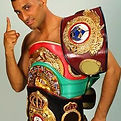BoxingAcademyOnline.com

The Boxer's Diet Plan
The Boxer’s Diet Plan: A Complete Guide to Nutrition for Fighters:
When it comes to boxing, training and technique are crucial, but a proper diet for boxers is just as essential for peak performance. Nutrition plays a central role in muscle recovery, energy levels, endurance, and maintaining the appropriate weight class. In this comprehensive guide, we will explore the ideal diet plan for boxers, focusing on the right balance of macronutrients, meal timing, hydration, and supplements.
Why Nutrition Is Crucial for Boxers
A boxer’s body endures high levels of physical stress through intense workouts and sparring. Without the proper fuel, performance can drop, recovery slows, and the risk of injury increases. An effective boxing diet ensures that the athlete maintains strength, stamina, and mental focus inside and outside the ring.
Macronutrient Breakdown: Protein, Carbs, and Fats
-
Protein – The Foundation of Muscle Recovery:
Protein is essential for building and repairing muscle tissue. A boxer should consume between 1.6 to 2.2 grams of protein per kilogram of body weight daily. Lean meats like chicken, turkey, eggs, Greek yogurt, fish, and plant-based sources such as lentils and beans are excellent choices.
2. Carbohydrates – The Primary Energy Source:
Carbohydrates are the body’s main fuel, especially for high-intensity training. Complex carbs such as brown rice, quinoa, oats, sweet potatoes, and whole grains should make up 45–60% of a boxer’s total caloric intake. These provide long-lasting energy and help maintain glycogen stores.
3. Fats – Essential for Hormonal Balance and Energy
Healthy fats support hormone production and provide a concentrated source of energy. Avocados, nuts, seeds, olive oil, and fatty fish like salmon should be incorporated moderately into the diet.
Sample Daily Meal Plan for a Boxer
Here’s a sample boxer’s meal plan that provides balanced nutrition for training and recovery:
-
Breakfast:
Oatmeal with banana, almond butter, and boiled eggs -
Snack:
Greek yogurt with berries and chia seeds -
Lunch:
Grilled chicken breast, brown rice, and steamed broccoli -
Pre-Workout Snack:
Whole grain toast with peanut butter and a piece of fruit -
Post-Workout Meal:
Protein shake with banana and low-fat milk -
Dinner:
Baked salmon, sweet potatoes, and a mixed salad -
Before Bed Snack:
Cottage cheese or a boiled egg
Hydration for Boxers
Staying hydrated is critical. Dehydration reduces performance, concentration, and recovery. A boxer should drink at least 2.5 to 3 liters of water per day, more during intense training or in hot climates. Electrolytes (sodium, potassium, magnesium) should be replenished through sports drinks or natural sources like coconut water.
Supplements for Boxers
While whole foods should always come first, supplements can help fill nutritional gaps:
-
Whey protein – aids muscle repair
-
Creatine – boosts power and endurance
-
Omega-3 fatty acids – reduce inflammation
-
Multivitamins – ensure micronutrient balance
-
BCAAs – assist with recovery during and after workouts
Weight Management in Boxing
Boxers often compete in weight-specific categories, so weight cutting becomes part of the diet strategy. It must be done safely and gradually to avoid losing muscle or becoming dehydrated. Crash diets or extreme calorie restrictions can impair performance. A good rule is to aim for 0.5–1 kg of weight loss per week, with the help of a nutritionist or coach.
Foods to Avoid
Boxers should avoid:
-
Processed sugars and refined carbs
-
Deep-fried and fast food
-
Sugary beverages and energy drinks
-
Excess salt and junk snacks
-
Alcohol
These foods hinder performance, cause fatigue, and slow down recovery.
Conclusion
An effective diet plan for boxers is more than just eating healthy—it's about strategic fueling to perform, recover, and stay strong. With the right balance of proteins, carbs, fats, hydration, and supplements, a boxer can stay in top condition and outmatch their opponents in and out of the ring.
For aspiring fighters, always consult a sports nutritionist to tailor your meal plan to your body type, training intensity, and goals. Nutrition is your secret weapon—use it wisely.



Website Contents
The contents by the website
.jpg)

.jpg)

.webp)
.jpg)